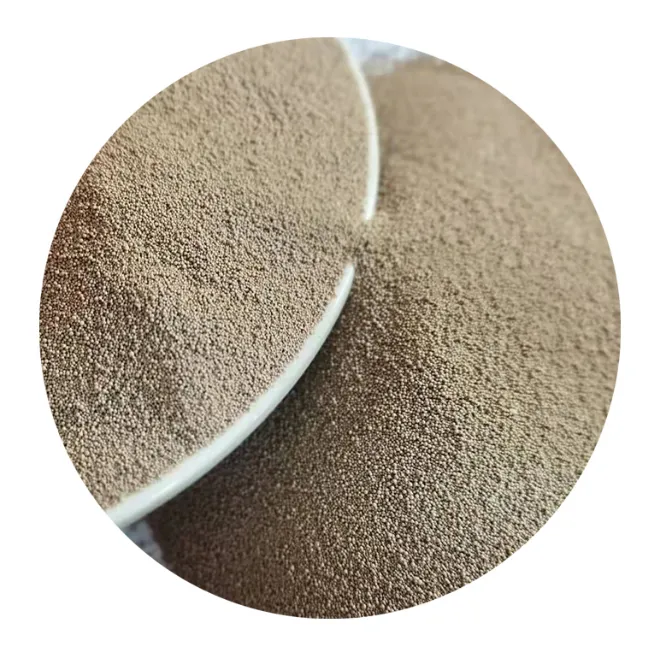Ceramic sand is a type of sand used in the production of ceramics and various industrial applications. It is characterized by its high heat resistance and uniform particle size, making it a crucial component in industries such as casting, foundry, and construction. In this article, we will explore the uses of ceramic sand, the price range, and other important details related to it.

What is Ceramic Sand?
Ceramic sand is a specialized type of sand that is primarily used in the manufacturing of ceramics, castings, and other industrial materials. It is typically made from high-purity minerals such as kaolin or bauxite, which are heat-resistant and have a unique structure suitable for various applications. The sand is processed to achieve the right particle size and composition that enhances its performance in industrial uses.
Uses of Ceramic Sand
Ceramic sand has a wide range of applications due to its unique properties, particularly its heat resistance, chemical stability, and particle uniformity. Some of the key uses of ceramic sand include:
Foundry and Casting Industry:
- Molding and Core Sand:Ceramic sand is often used in the foundry industry for making molds and cores for metal casting. The high heat resistance of ceramic sand makes it ideal for use in high-temperature environments, where it can withstand the heat generated during metal casting processes.
- Improved Surface Finish:Ceramic sand helps in producing smooth and precise surface finishes in metal castings.
Petroleum Industry:
- Frac Sand:Ceramic sand is used in the oil and gas industry as frac sand for hydraulic fracturing (fracking). Its high strength and uniform particle size make it ideal for holding open fractures in the rock, allowing oil or gas to flow more easily.
Construction Industry:
- Building Materials:Ceramic sand is used in the production of construction materials such as concrete and tiles. It enhances the strength and durability of these materials.
- Lightweight Aggregates:Ceramic sand is also used as a lightweight aggregate in concrete, reducing the overall weight of the structure without compromising strength.
Refractory Materials:
- High-Temperature Applications:Due to its ability to withstand extremely high temperatures, ceramic sand is used in the production of refractories and other heat-resistant materials used in kilns, furnaces, and reactors.
Filtration Systems:
- Water Filtration:Ceramic sand is used in filtration systems, particularly in water treatment plants. Its porosity and uniformity make it suitable for filtering out impurities from water.
Agriculture:
- Soil Improvement:Ceramic sand can also be used in agriculture to improve soil drainage, making it ideal for areas with heavy clay soil. It helps prevent soil compaction and enhances aeration.
Price of Ceramic Sand
The price of ceramic sand varies depending on factors such as quality, application, location, and quantity. The cost is influenced by the purity of the sand, the processing required to achieve the desired particle size, and the specific market demand.
Price Range:
- Bulk Price:Ceramic sand typically ranges from $100 to $500 USD per ton, depending on its grade and application. The price may be lower or higher based on the quantity ordered, and large-scale industrial purchases often come with bulk discounts.
- Frac Sand:Ceramic sand used for hydraulic fracturing (frac sand) can be more expensive, typically ranging from $200 to $600 USD per ton due to its specialized use and high demand in the oil and gas industry.
- Retail Price:For smaller quantities or consumer use (such as in crafts or small-scale ceramics), ceramic sand may be sold at prices ranging from $10 to $50 USD per bag.
It’s important to note that prices can vary based on the supplier, market conditions, and shipping costs, especially for international orders.
Simply Sands Ceramics
While Simply Sands Ceramics may refer to a brand or a company name involved in the sale or production of ceramic sand, it’s important to understand that ceramic sand is a commodity used by various industries, and many suppliers or manufacturers provide this material under different names or labels.
If Simply Sands Ceramics is a supplier or brand you are interested in, it’s best to research further to identify their offerings, including pricing, shipping, and specific product features. You can find more details by contacting them directly or visiting their website if available.
Ceramic sand is an essential material in various industries, from casting and foundry applications to petroleum and construction sectors. It’s highly valued for its heat resistance, uniform particle size, and versatility in many industrial processes. Whether you're involved in casting metal, fracking for oil, or producing lightweight concrete, ceramic sand plays a key role in improving efficiency and quality.
The price of ceramic sand varies significantly depending on the application, quantity, and supplier, but it remains an affordable material for large-scale use. If you are looking to buy ceramic sand, it's important to compare prices from different suppliers and assess the quality and specifications required for your specific use case.
Post time:अप्रिल . 03, 2025 15:43Next:Casting Sand: Types, Uses, And Price Overview
